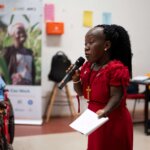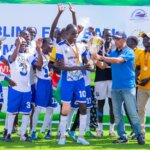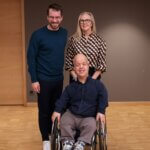- General
- Economic Empowerment
As the We Can Work Academy launches, here are some key strategies to support young women and men to find fulfilling work.
Six hundred young women and men with disabilities across Ethiopia, Kenya, Uganda, Rwanda, Ghana and Nigeria are set to find decent and fulfilling work.
We Can Work Academy launch
The We Can Work Academy has kicked off, offering innovative upskilling, and introducing participants to different career paths, from waged employment to entrepreneurship.
The Academy is part of the We Can Work programme, a partnership between Light for the World, Mastercard Foundation, African Disability Forum, seven National Organisations of Persons with Disabilities (OPDs) across seven African countries, and Crosswise Works.
Fulfilling work for young people with disabilities
Young women and men with disabilities are often left behind when it comes to finding decent and fulfilling work.
Young people aged 15 to 29 with disabilities are up to five times more likely to be outside the educational system and not in employment or training than their peers without disabilities, according to the International Labour Organization.
The academy launched with a focus on ‘core life skills’, following a curriculum that was developed based on co-creation involving young people with disabilities, disability inclusion experts and OPDs.
It includes training on self-discovery, communication skills, sexual reproductive health rights, mental health support, stress management and resilience-building techniques.
“Lessons learned from similar programmes, with different approaches towards transition to work for youth with disabilities, show the importance of core life skills as a foundation to successfully accessing and retaining decent work,” says Andera Delfyna, Learning and Innovation Specialist, We Can Work.
Here are four ways to support young people with disabilities into fulfilling jobs.
1. Inclusive training to find a fulfilling job
Any training aimed at supporting young people with disabilities into fulfilling jobs must be inclusively designed to cater for people with all types of disabilities.
The We Can Work team co-designed the Academy skills training with young people with disabilities and other inclusion experts to ensure everyone can participate equally.
That means all training materials and workshops must be fully accessible. For example, including sign language interpreters and information in braille. Participants with a need for personal assistance can attend with a support person. These personal assistants are trained by the We Can Work team.
“We have youth with different disabilities including vision, hearing, intellectual, psychosocial, albinism, short stature, multiple and epilepsy,” says Linda Ungwech, We Can Work Uganda Programme Manager.
“The team-oriented approaches on facilitating learning for the different impairment needs, and our approach to being intentional in identifying different impairments, has made the training successful.”
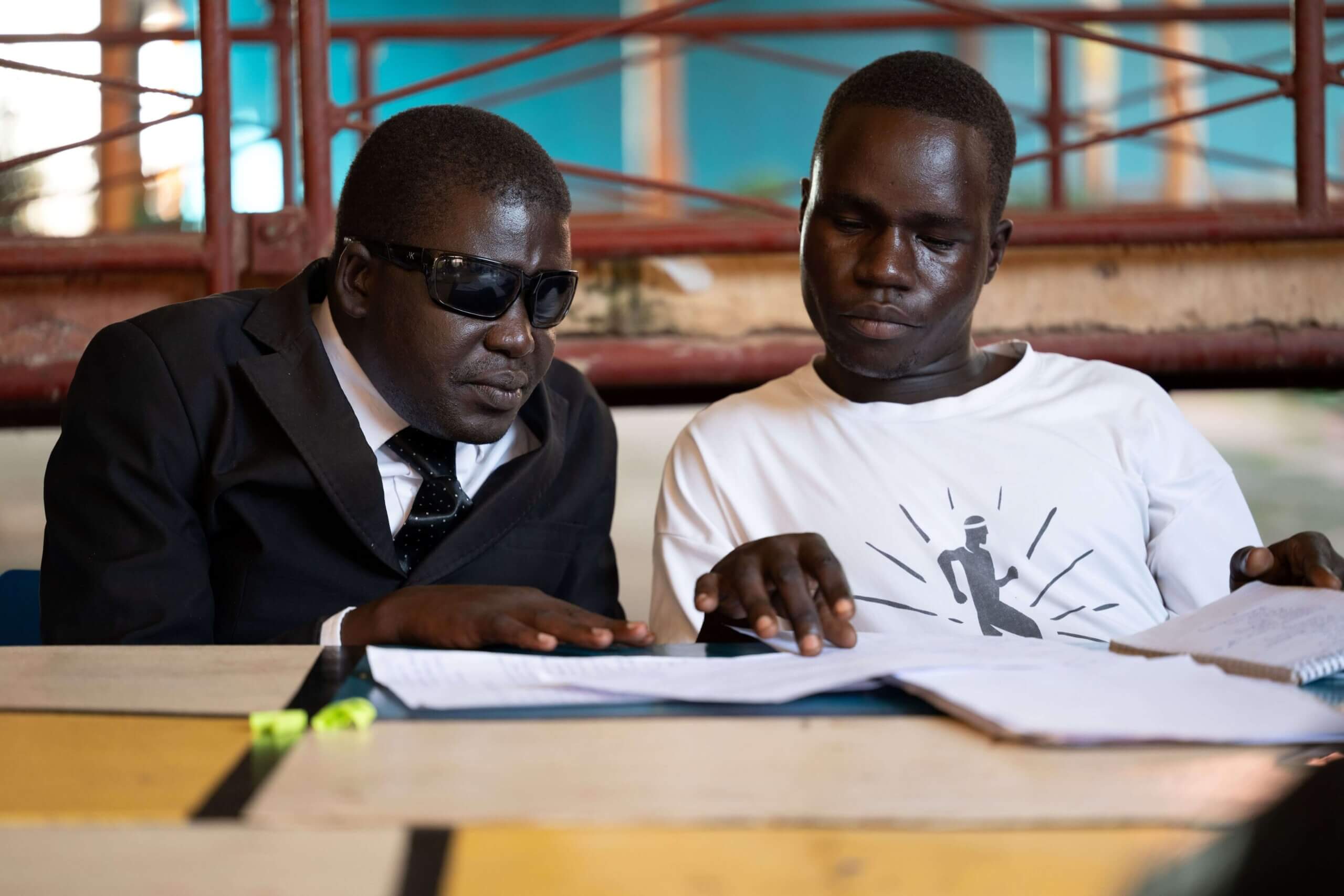
2. Partner with expert organisations
Collaboration makes us stronger and partnerships with expert organisations can support young people with disabilities to forge fulfilling careers.
The We Can Work Academy works with leading organisations in entrepreneurship and businesses development in the countries where we work.
With our partners, we work alongside these organisations to provide training and expertise in a disability-inclusive way.
This paves the way for more inclusive entrepreneurship support systems, that can benefit thousands of young women and men with disabilities.
The We Can Work Academy is not only transforming the lives of participants, but also challenging perceptions of the trainers.
“I had the feeling that I was going to find the facilitation difficult because I thought persons with disabilities needed to be assisted to do everything,” says Muhammed, a facilitator in Accra, Ghana.
“But Emmanuel, a participant with visual disability, changed my perception forever. He asked to be taken around to familiarise himself with the training venue. And from that day he went to the washroom and dining area without help.”
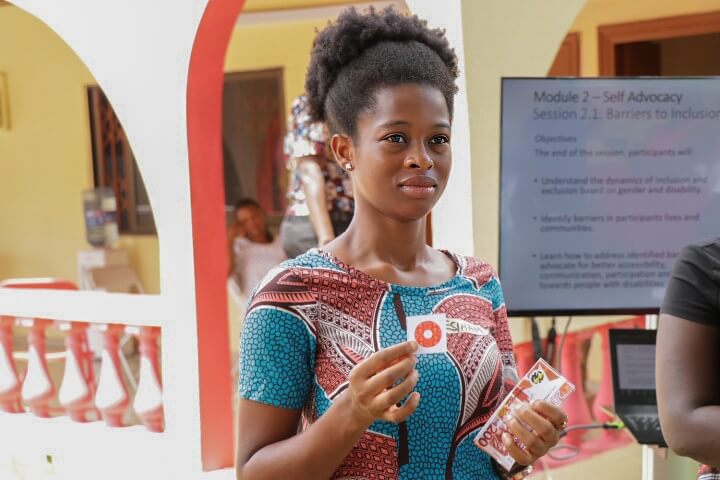
3. Include gamification to support young people with disabilities into fulfilling work
Young people learn in diverse ways. A range of teaching methods can be used in training sessions aimed at supporting young people with disabilities into fulfilling jobs.
The We Can Work Academy incorporates ‘gamified’ learning — where elements of games are used in exercises — to enhance the engagement of programme participants.
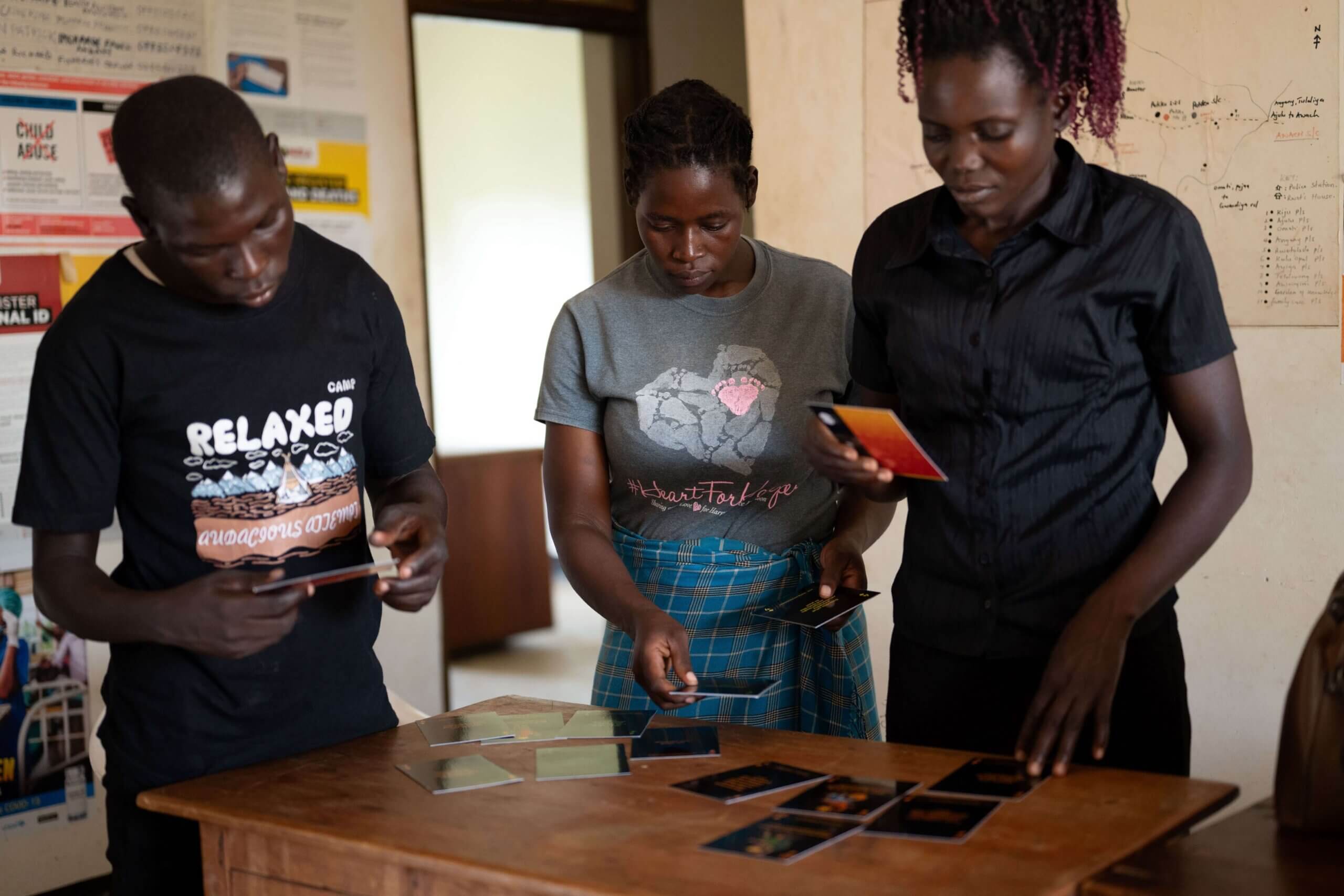
The action-packed sessions include creative activities, like drawing, and group discussions. This variation also addresses gaps in literacy levels, creating an inclusive environment where everyone can contribute and learn.
A young man with a visual impairment from Uganda appreciates the storytelling elements of the training: “I was eager to know the different stories from other participants and see how different they are from mine, this kept me coming every day for the training,” he says.
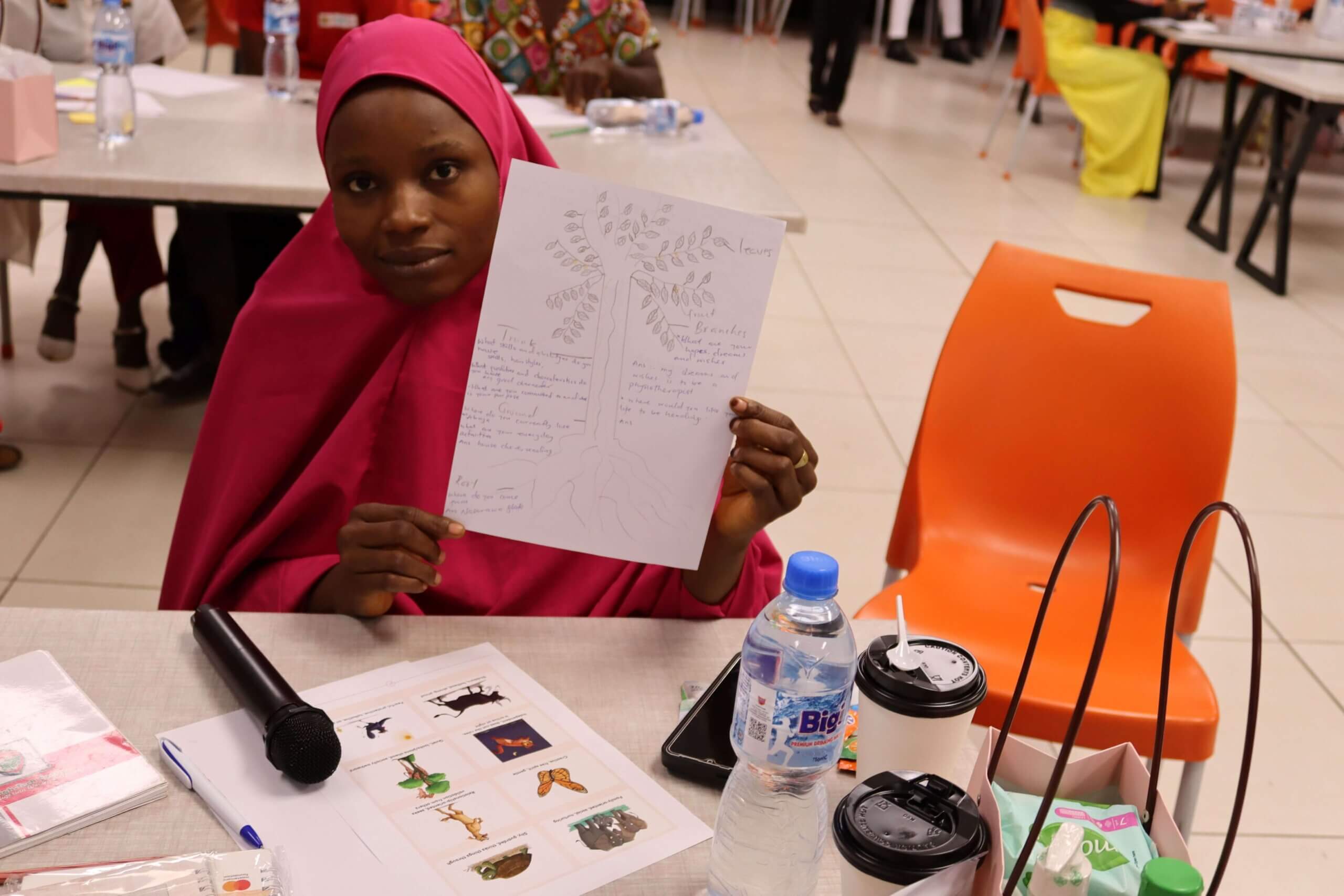
4. Accessible and childcare-friendly locations
No one should be denied training or opportunities to support transition to work, including those with young children and those who require additional support.
This means training locations must be fully accessible to all participants.
The We Can Work Academy programme team ensures that young mothers and fathers are included in training by supporting participants to attend with a babysitter and arranging space for childcare at the training location.
This allows young people with disabilities to focus on their training and the journey to decent and fulfilling work.
